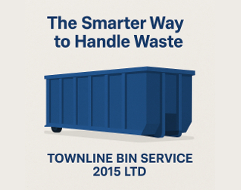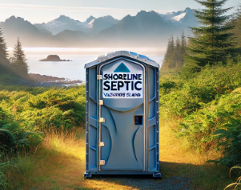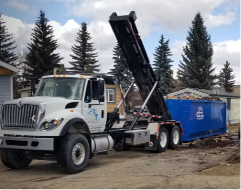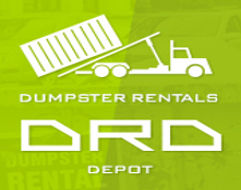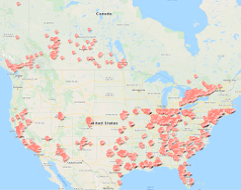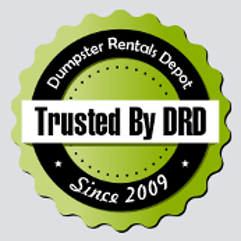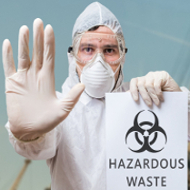Food Scrap Separation Ban
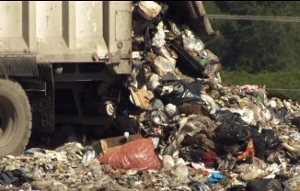
The new waste disposal rules has been introduced by Metro Vancouver after consultation with local government and businesses throughout the region. Some of which have already made a switch. The new rules for food scraps are now in effect. However, Metro Vancouver is hoping to facilitate a smooth transition by giving waste haulers and their customers time to adjust to new rules.
Why food scraps in garbage are a problem
When food and other organic materials end up in the landfill with the rest of the garbage they:
- Create methane, a powerful GHG (greenhouse gas) that adds to global warming. In the landfill, buried under layers of waste and without access to oxygen, food can't decompose properly.
- Use up a lot of precious landfill space. Space is limited, and creating more landfills is undesirable. Over 30% of what we send to the landfill in our region is compostable organics.
- Make waste-to-energy processes less efficient because of their high moisture content. About a third of the region's waste is disposed in the waste-to-energy facility.
The new waste rules began January 2015. Changing the way we handle waste has long term benefits for region.
Food scraps ban helps:
- Reduce landfill dependence
- Cuts down on greenhouse gas emission
- Repurpose organic food waste
Separating out our food waste from makes sense from so many different prospective. It allows us to take out a good quality materials and create compost with them or put it into bio-energy facility so we can fuel engines. It is something we should do to protect our environment now and into the future.
What will be banned
Food scraps will need to be separated from regular garbage. This includes leftovers and plate scrapings, raw food such as potato peelings, unpackaged food, meat, fish, etc. Some food soiled paper such as pizza boxes or used table napkins can also be collected with your food scraps. Check with your hauler to ensure you are recycling all that you can.
Who’s involved
Initially this will mostly affect the large generators of food scraps (e.g. food markets, grocers and large restaurants) in the first year, and be phased in to affect eventually everyone across the Metro Vancouver region.
Commercial buildings (examples include grocery stores, restaurants, hotels, retail stores and shopping malls, offices)
Institutional and industrial buildings (examples include health care facilities and schools)
Single family houses and residential buildings
Start date and phasing in
Prior to January 1, 2015 - Many businesses, households and institutions recycle food scraps regularly. Metro Vancouver, your city, many property managers, business improvement areas and other business groups have been preparing for the ban for the past couple of years.
January 1 to June 30, 2015 -The Organics Disposal Ban is enforced through education. Loads of waste brought to a transfer station with over 25% food will be identified, and the hauler of that load reminded of the ban and provided with information. All businesses and residential buildings are encouraged to plan and introduce food scraps recycling programs during this time frame.
July 1 to December 31, 2015 - Financial enforcement begins. Waste loads with more than 25% visible food will be surcharged an additional 50% of the cost of disposal. (eg a $100 load will be charged $150) In general, this type of load is generated by a grocery or large restaurant that does not have an effective food scraps recycling program. All businesses and residential buildings are encouraged to introduce and improve food scraps recycling programs during this time frame.
January 2016 onwards - The amount of food scraps allowed in the garbage will be lowered, likely to 10% and then 5% as with other disposal bans. By now, most buildings should have food scraps recycling programs in place.
Enforcement
This disposal ban will be enforced the same as the region's other disposal bans. Waste is inspected when it is delivered to a regional disposal facility. If a waste load contains excessive amounts of recyclable materials, the hauler pays a surcharge of 50% on the cost of disposal. As part of the implementation described above, financial penalties will not be applied to any waste loads prior to July 1, 2015
Questions?
The Recycling Council of BC staff can answer questions and provide contacts for commercial recycling services. Contact the Recycling Hotline at 604-REC-YCLE (604-732-9253).
For more information on the food waste rules and useful tips on implementing waste separation strategies please visit Metro Vancouver Services And Solutions For A Livable Region .
Harry Cotten is the Dumpster Rentals Depot Customer Support Manager. You can find his Google Plus Page and read more of Harry's posts by visiting Harry Cotten Google + Profile .
- Published: 2015-04-25T15:56:23-07:00
- Author: Harry Cotten
